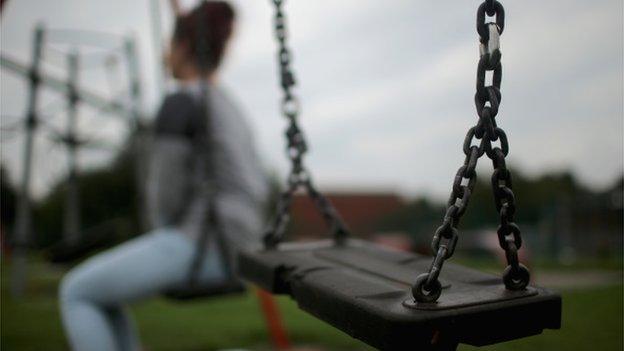Child abuse inquiry: Angela Constance defends remit
- Published
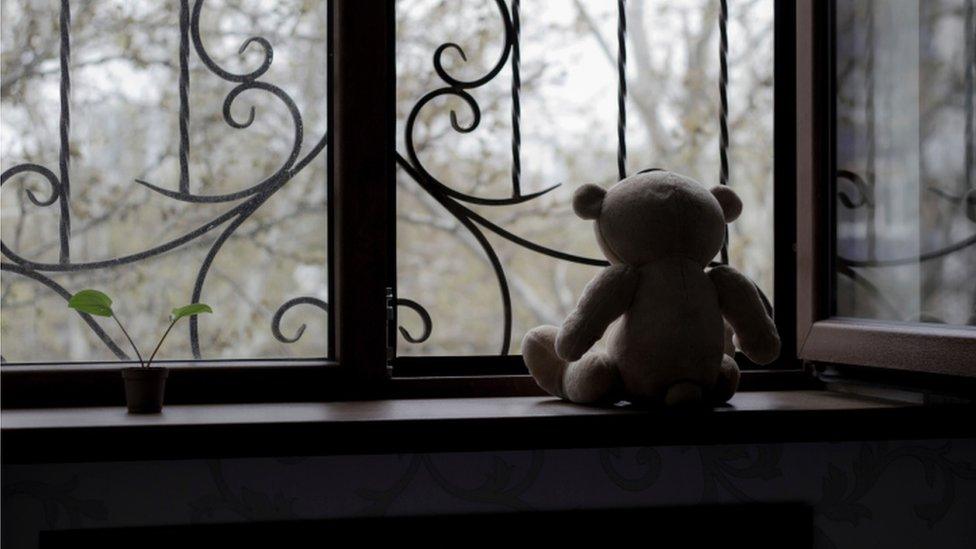
The inquiry will investigate the abuse of children in care up to December 2014
A Scottish government minister has defended its inquiry into child abuse after survivors' groups called for its remit to be extended.
Campaigners have claimed institutions such as the Catholic Church and Boy Scouts could be "let off the hook".
But Education Secretary Angela Constance said the scope of the inquiry was "very far reaching".
And she said religious organisations were covered when they had looked after children in a residential capacity.
The Scottish Child Abuse Inquiry, external has been tasked with "raising public awareness of the abuse of children in care, providing an opportunity for public acknowledgement of the suffering of those children and a forum for validation of their experience and testimony."
'Religious organisations'
But survivors' organisations, who are due to meet Ms Constance on Thursday, have called for its remit to be extended amid claims that institutions such as the Catholic Church would be excluded from its investigations.
Speaking ahead of the meeting, Ms Constance told the BBC's Good Morning Scotland programme that "religious organisations and orders are included in the inquiry where they have looked after children in a residential capacity".
She said the scope of the inquiry had already been widened, and that the definitions of "in care" and "abuse" were very broad.
She added: "What we have tried to do is to try to strike the right balance.
"We want to ensure that survivors don't actually lose hope and that the inquiry will report back within a reasonable timescale - we have set four years - and actually be able to make clear and meaningful recommendations."

What is the Scottish Child Abuse Inquiry?
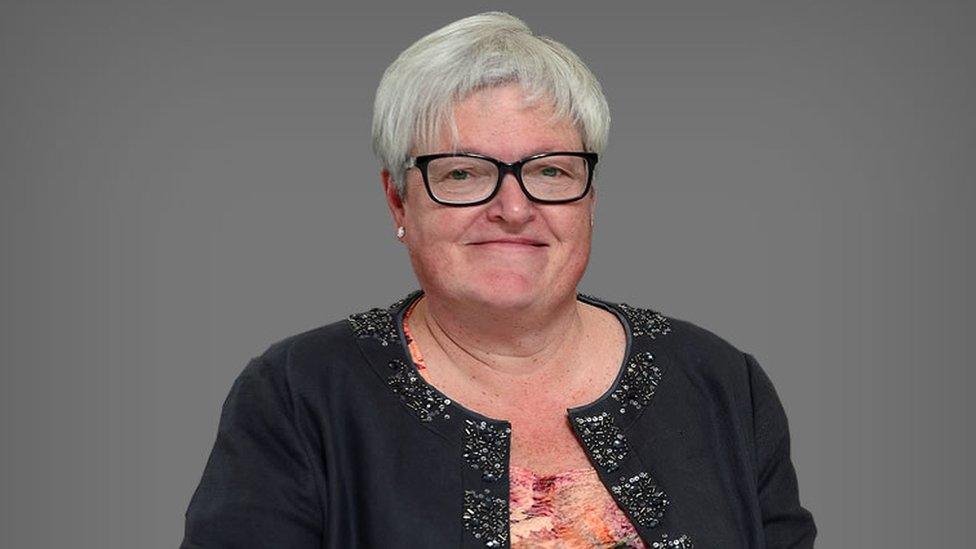
The independent public inquiry is being chaired by Susan O'Brien QC
The inquiry has been tasked with investigating the nature and extent of abuse of children while in care in Scotland, and to consider the extent to which institutions and bodies with legal responsibility for the care of children failed in their duty of care.
When she established the inquiry last year, Ms Constance said, external it would "aim to shine a light in the dark corners of the past, to shape how we respond in the present and guide how we go forward in the future."
She also said that "we need to learn all we can to ensure no institution becomes a hiding place for those who abuse positions of trust to prey on children."
The inquiry's remit currently allows it to investigate cases of children being abused while in institutional care "within living memory" up to December 2014.
It classes "in care" as being:
Children's homes (including residential care provided by faith based groups);
Secure care units including List D schools;
Borstals and Young Offenders' Institutions;
Places provided for Boarded Out children in the Highlands and Islands;
State, private and independent Boarding Schools, including state funded school hostels;
Healthcare establishments providing long term care, and any similar establishments intended to provide children with long term residential care.
Children in foster care.
But it does not cover children who were abused while living with their natural or adoptive families, while using sports and leisure clubs or attending faith based organisations on a day to day basis.
The inquiry will also not examine allegations of children being abused in non-boarding schools, nursery or day-care centres.
The definition of "abuse" for the purpose of the inquiry is taken to mean primarily physical abuse and sexual abuse, with associated psychological and emotional abuse.
The inquiry has been instructed to publish its report and make its recommendations by October 2019 - four years after it was established.

But the White Flowers Alba (WFA) survivors' organisation said Catholic victims were being discriminated against because the inquiry had not been given the necessary powers to investigate allegations of abuse carried out in parishes or day schools.
It has called for the inquiry's remit to be extended to match that of one being led by Justice Lowell Goddard in England and Wales, which is investigating abuse carried out within the Catholic Church and other religious orders.
WFA spokesman Andi Lavery said: "Survivors continue to suffer. Why does a child raped by a priest in Cumbria, matter more than one in Edinburgh, Glasgow or Motherwell?"
He added: "When as children we said: 'No, please stop doing that', we say together resolutely as adult abuse survivors: 'This current inquiry is not fit for purpose'."
His comments were echoed by the In Care Abuse Survivors Scotland (INCAS) group, whose spokesman Alan Draper said the inquiry should "fit the purposes of survivors, not those institutions that have failed generations of children".
'Not justice'
Mr Draper added: "We do know, for example, that the Boy Scout organisation and the Catholic Church have failed generations of children and we asked her (Ms Constance) to extend the remit.
"She is currently letting them off the hook. This is not justice."
In a letter to Ms Constance, Mr Draper argued that this "failure" to extend the remit had effectively resulted in the government becoming complicit in the cover-up of abuse."
The attack on the government came as the Scottish Child Abuse Inquiry announced special measures to prioritise the testimonies of elderly or seriously ill people.
Its chairwoman, Susan O'Brien QC, said: "We are not quite ready to issue a call to all survivors and witnesses to come forward, as we are arranging to put support in place for people who will find giving evidence upsetting.
"Unfortunately, not everyone can wait even a few more weeks, so we have decided to take evidence from a small number of survivors as a matter of urgency."
The inquiry also said it was dropping the word "historical" from its title as it was prepared to hear allegations of abuse from as recently as December 2014.
- Published7 January 2016
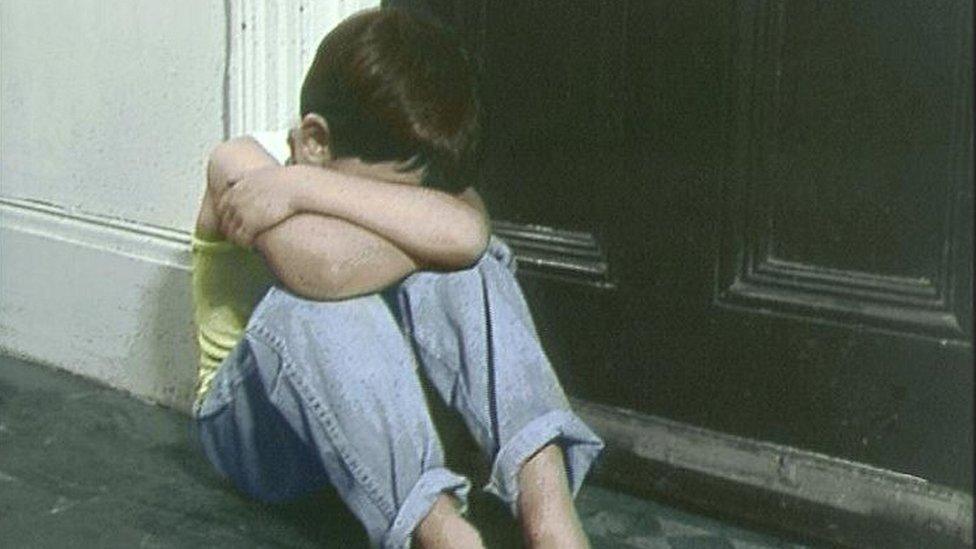
- Published26 November 2015
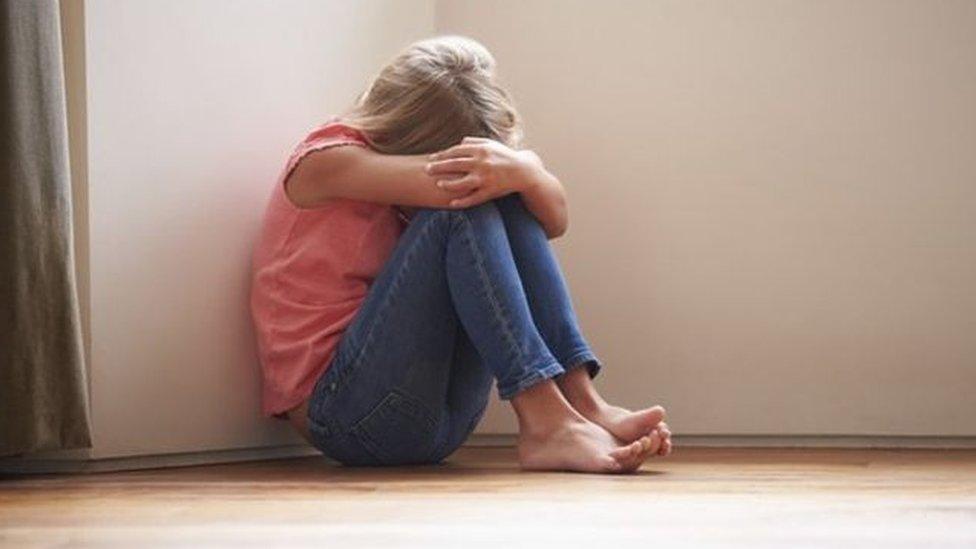
- Published16 November 2015
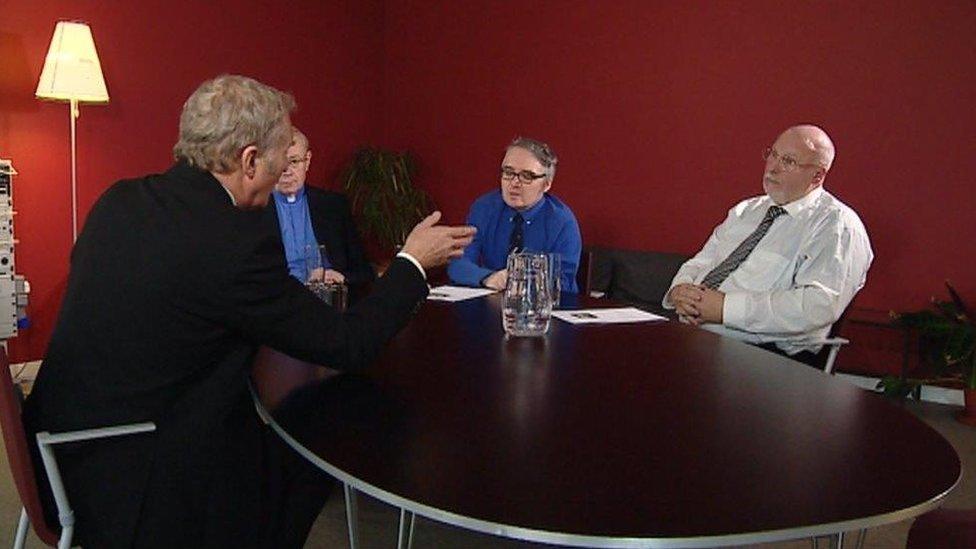
- Published1 October 2015

- Published17 December 2014
